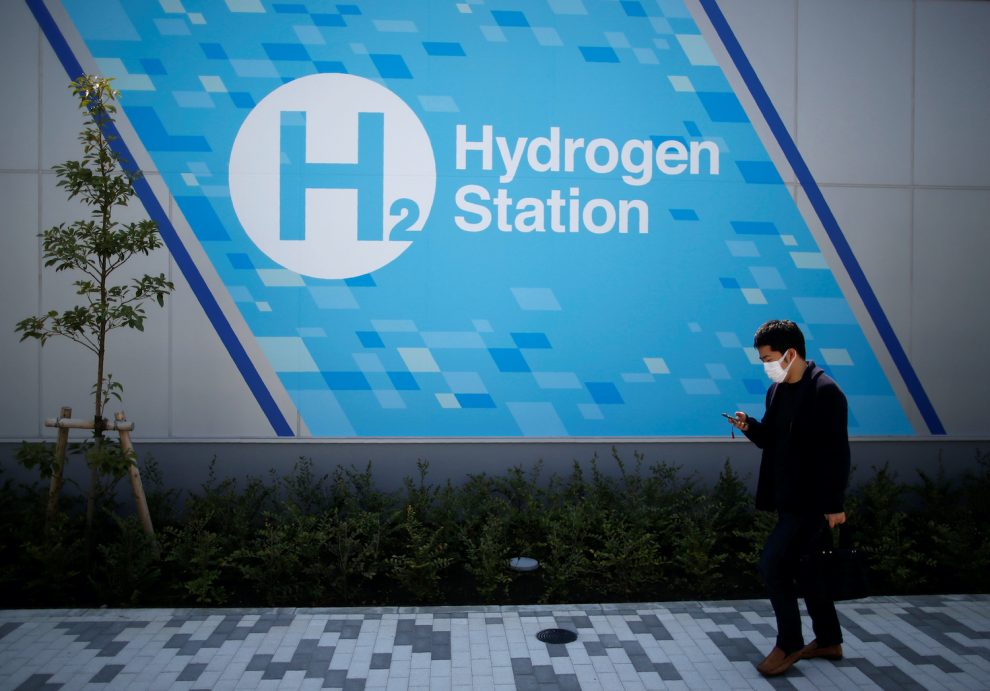Japan is to commit $3.4 billion to two major projects to accelerate and promote hydrogen use in the country over the next 10 years.
Tokyo said on Tuesday that the money will come from its green innovation fund and follows on from its announcement in December that it aims to boost the country’s demand for hydrogen to 3 million tonnes a year by 2030 – from about 2 million tonnes currently – and to 20 million tonnes by 2050.
One of the projects will be a 300 billion yen plan to create a large-scale supply chain of hydrogen and promote demand for the clean fuel.
Also on ATF: Copper conundrum sees producers profit as public struggle
The other 70 billion yen project will develop a large-scale, cost-efficient hydrogen production system by water electrolysis using electricity derived from renewable energy sources, the government said.
The two projects will be funded from the government’s 2 trillion yen green innovation fund created to help the country achieve its 2050 target of becoming carbon neutral.
They are the first of 18 potential projects announced by the ministry last month to support R&D, by tapping into the government’s fund.
ROCKET FUEL
Hydrogen, long used as rocket fuel, is mostly extracted from natural gas or coal. It is mainly utilised in oil refining and to produce ammonia for fertilisers but future demand is expected to come from transport, building and power generation.
Details of other R&D projects to tap into the government fund, including lowering the cost of offshore wind farms and building a supply chain of fuel ammonia, will be decided by the autumn, an official at the industry ministry said.
- Reporting by Reuters
























